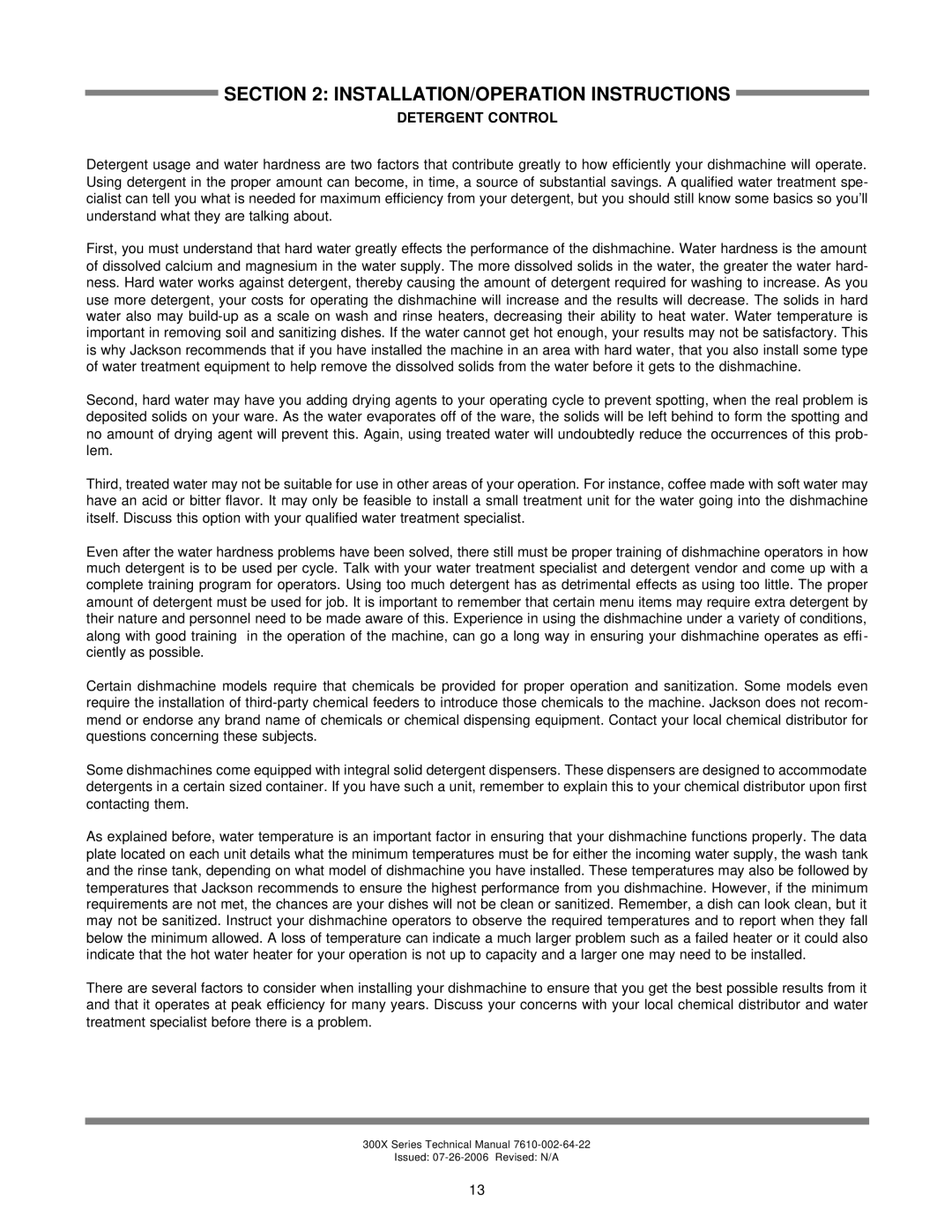300X, 300XN, 300XLT, 300XS specifications
The Jackson 300 series presents a range of advanced air conditioning units that cater to diverse heating and cooling needs. Notable models include the 300X, 300XLT, 300XN, and 300XS, each equipped with distinct features that enhance performance, efficiency, and user comfort.The Jackson 300X stands out with its cutting-edge inverter technology, which enables precise temperature control while minimizing energy consumption. Its variable-speed compressor adjusts to real-time conditions, ensuring consistent comfort and significant savings on utility bills. The model is also recognized for its robust build quality, designed to withstand extreme weather conditions.
On the other hand, the 300XLT model takes energy efficiency to the next level. This unit incorporates a high-efficiency condenser and evaporator coils, promoting improved heat exchange and reduced energy loss. Additionally, it utilizes eco-friendly refrigerants that comply with environmental regulations, making it a responsible choice for conscious consumers.
The 300XN variant is tailored for noise-sensitive environments, such as bedrooms and offices. This silent operation feature allows the unit to run at remarkably low decibel levels, providing comfort without the disruption of loud HVAC systems. The 300XN also boasts an advanced filtration system that improves indoor air quality, capturing dust and allergens effectively.
Lastly, the Jackson 300XS is designed for exceptional versatility. This model offers multiple installation options, making it suitable for various spaces, from residential to commercial settings. Equipped with smart connectivity features, the 300XS can be controlled remotely via a smartphone app, allowing users to adjust settings on-the-go.
All models come with a user-friendly interface, allowing for easy temperature adjustments and filter change notifications. The durability of these units is further enhanced by their corrosion-resistant materials, extending their lifespan and performance.
In summary, the Jackson 300 series features models like the 300X, 300XLT, 300XN, and 300XS, each offering unique advantages. With a blend of innovative technologies, energy efficiency, and user-friendly controls, these air conditioning units provide tailored solutions to meet varied environmental demands, ensuring optimal comfort year-round. Whether for residential or commercial use, Jackson's offerings underscore a commitment to quality and performance, making them a notable choice in today’s HVAC market.

